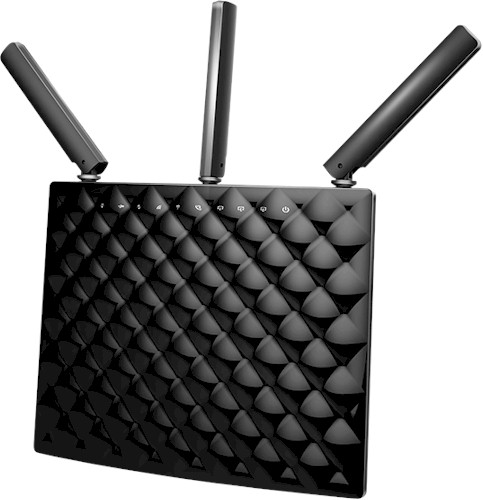Tenda has announced its first AC1900 class wireless router.
The Tenda AC15 is a Broadcom-based wireless router that supports maximum link rates of 1300 Mbps in 5 GHz and 600 Mbps in 2.4 GHz when used with devices supporting those rates.
It has Gigabit WAN (1) and switched LAN (3) ports and a single USB 3.0 port supporting local and "secure cloud" storage sharing and print serving.

Tenda AC15 AC1900 router
Tenda has traditionally focused on producing routers priced well below competing brands.. But the AC15’s $129.99 MSRP is right in line with other lower-cost AC1900 class routers like TP-LINK’s Archer C9 and TRENDnet’s TEW-818DRU.
The Tenda AC15 is shipping now.![]()
